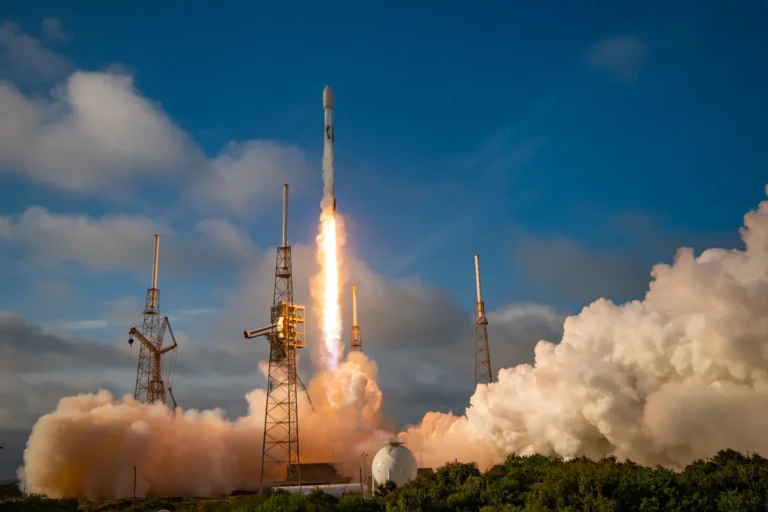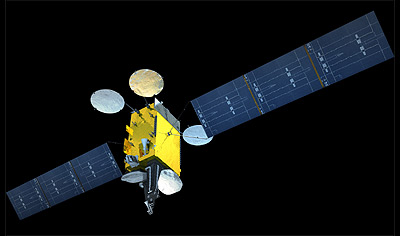Indonesia prefers Musk’s missiles to Chinese ones, and this could have serious repercussions

Elon Musk, owner of SpaceX, the world's most successful orbital shipping company, took advantage of the bankruptcy to prevail over state-owned China Great Wall Industry Corp (CGWIC) and become Jakarta's company of choice for putting satellites into orbit : in fact, Indonesia initially relied on China to launch its telecommunications satellites, but the launch failed. The Chinese company CGWIC made many promises, but failed to realize them.
The Chinese contractor had courted Indonesia – Southeast Asia's largest economy and a key market for space growth – with cheap financing, promises of broad support for its space ambitions and Beijing's geopolitical clout.
A senior government official and two industry officials in Jakarta familiar with the matter told Reuters that the malfunction marked a turning point for Indonesia, which has moved away from Chinese space contractors in favor of space companies. owned by Musk.
Nusantara-2 was the second satellite launch awarded by Indonesia to CGWIC, matching the two carried out by SpaceX in that period. Since it went bankrupt, SpaceX has launched two Indonesian satellites and a third is scheduled for Tuesday; China hasn't run any.
SpaceX overtook Beijing thanks to a combination of launch reliability, cheaper reusable rockets and the personal relationship Musk has built with Indonesian President Joko Widodo, Reuters found. Following a meeting between the two men in Texas in 2022, SpaceX also won regulatory approval for its Starlink satellite internet service.
The SpaceX deals represent a rare case of a Western company penetrating Indonesia, whose telecommunications sector is dominated by Chinese firms offering low costs and easy financing. The successes came after Indonesia resisted pressure from the United States to abandon deals with Chinese tech giant Huawei, citing its dependence on Beijing's technology. Instead of political pressure, the AU tries to penetrate in a more incisive and correct way, that is, with a technological superiority that is difficult to counter. But this does not come from the US government, but from a private individual who is extremely critical of Biden.
“SpaceX has never failed to launch our satellites,” said Sri Sanggrama Aradea, head of the satellite infrastructure division at BAKTI, an agency of Indonesia's communications ministry.
The April 2020 incident makes it “difficult” for Jakarta to turn to CGWIC again, he added.
China's Foreign Ministry responded to questions from Reuters by saying that "Chinese aerospace enterprises are continuing their space cooperation with Indonesia in various forms." He did not provide details, and having said that it seems like confirmation that something is not working with the export of this sector for Beijing. Presidential office spokesperson Ari Dwipayana said the government gives priority to efficient technologies that meet the needs of Indonesians when awarding contracts.
The fight between SpaceX and China offers a window into a much larger battle to dominate a rapidly expanding space industry.
According to US consultancy BryceTech, the global satellite market – which includes manufacturing, services and launches – will be worth $281 billion in 2022, equivalent to 73% of all space activity.
A world race
China launched a record 67 rockets last year, out of 223 globally, according to a report by Harvard professor and orbital observer Jonathan McDowell. Most were launched by the CGWIC.
According to the report, China ranked only behind the United States, which carried out 109 launches, 90% of which were by SpaceX. Washington and Beijing are also competing for satellite communications networks.
SpaceX's Starlink, which owns about 60% of the roughly 7,500 satellites orbiting Earth, is dominant in the satellite Internet sphere. Last year, however, China began launching satellites from its rival Guowang broadband mega-constellation.
US military officials have said China wants to use satellites and space technology to spy on rivals and boost military capabilities. China's Foreign Ministry told Reuters that the U.S. allegations were defamatory and that Washington was using the concerns as a pretext to expand its influence in space.
The situation in the USA, however, is curious: on the one hand they still manage to dominate the sector, on the other they do it with a private company which, however, has almost a natural monopoly on launches. The competitors, Lockheed and Boeing, make many declarations, many public and private agreements, but in reality very few successful launches, leaving 90% of the market to Elon Musk's company. This makes us understand how the ability to innovate can often be greater than the billions provided by the military in development.
Pentagon spokesman Jeff Jurgensen declined to answer specific questions about SpaceX, but said the Department of Defense's "many partnerships with the space industry have a proven track record of success." Nicholas Eftimiades, a former US intelligence officer and expert on Chinese espionage operations at the Atlantic Council, a Washington-based think tank, said SpaceX's chief executive had angered the American capital: “Elon Musk makes things in his own way and some officials don't like this." However, Elon Musk and SpaceX are among the few, or rather very few, American companies that manage to contain the superiority of their Chinese counterparts.
After long discussions between Elon Musk and the Indonesian authorities, SpaceX managed to obtain a collaboration with Telkom, the Indonesian public telecommunications company, and its subsidiary that deals with satellite services, Telkomsat. In this case, Starlink was able to provide a backup internet service for Indonesia, a country closed to external penetration.
These contacts then led to the evolution of other negotiations between the Indonesian government and Elon Musk, which expanded to the auto sector, with offers of concessions for the construction of Tesla structures also in Indonesia. So what the USA cannot do, Musk manages, and this should make us think about the quality of the North American political class.

Thanks to our Telegram channel you can stay updated on the publication of new Economic Scenarios articles.
The article Indonesia prefers Musk's missiles to Chinese ones, and this could have serious repercussions comes from Economic Scenarios .
This is a machine translation of a post published on Scenari Economici at the URL https://scenarieconomici.it/lindonesia-preferisce-i-missili-di-musk-a-quelli-cinesi-e-questo-potrebbe-avere-delle-pesanti-ricadute/ on Tue, 20 Feb 2024 09:35:08 +0000.

